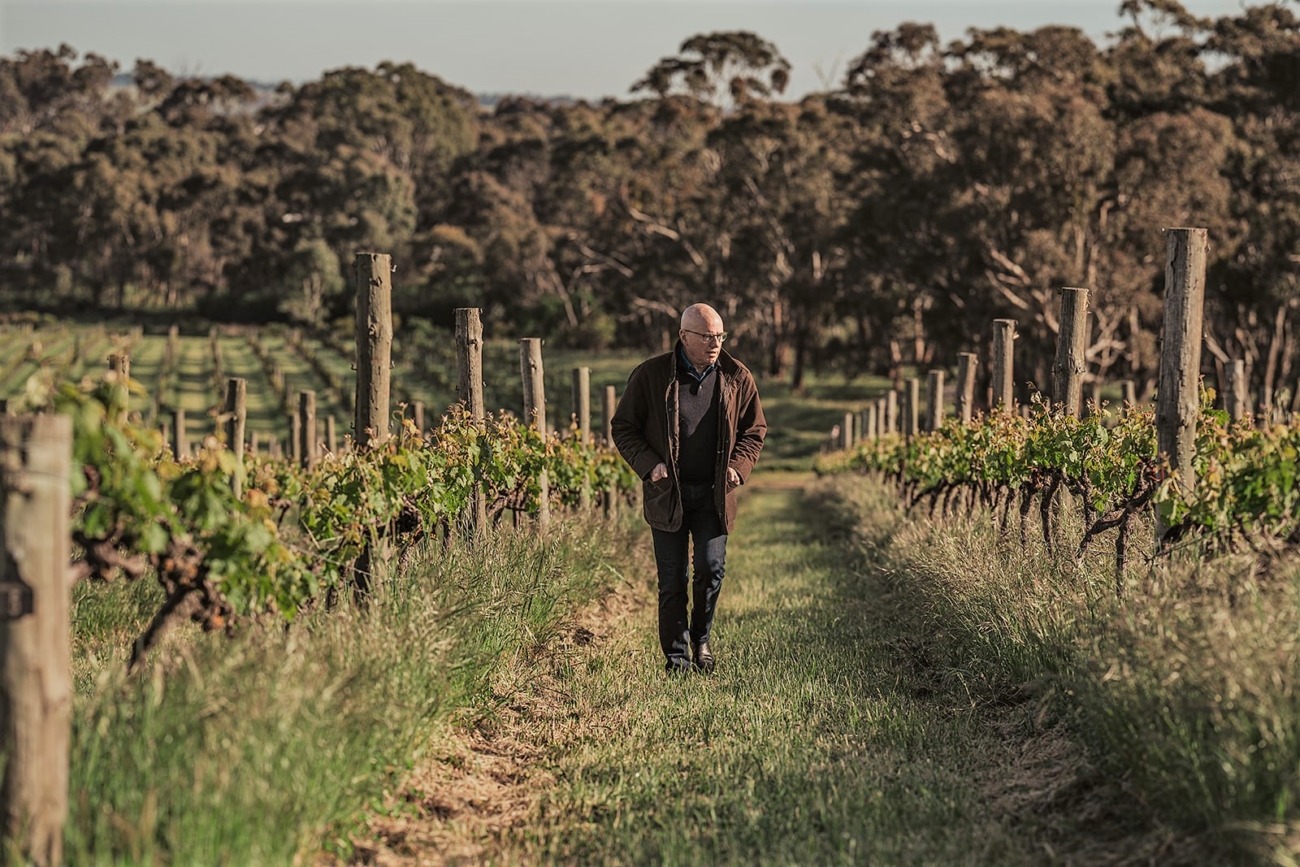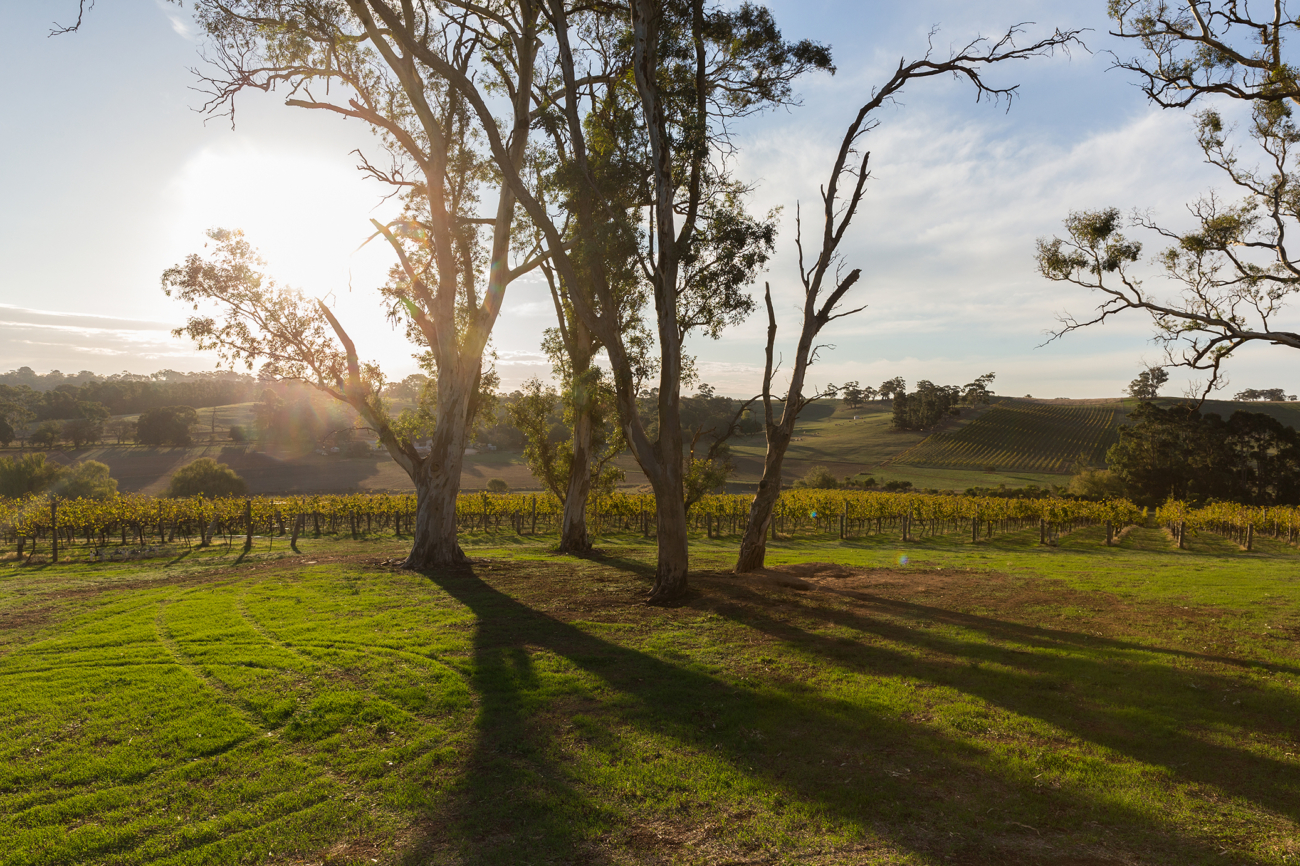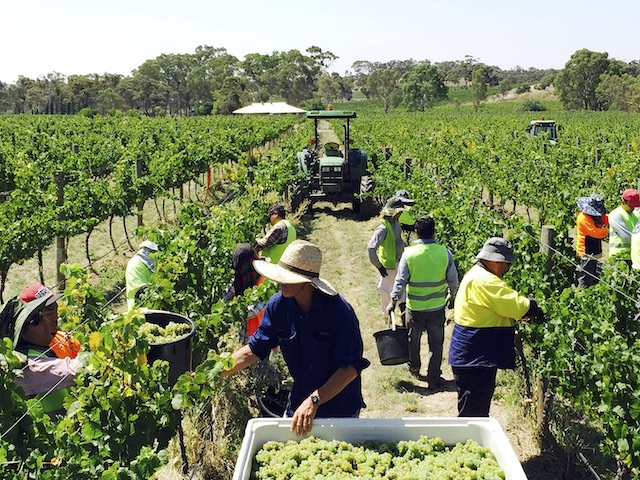Jeffrey Grosset – Clare Valley, South Australia
Jeffrey Grosset is widely recognised as Australia’s top Riesling producer. He makes tiny quantities of steely, intense, long-lived Rieslings from his biodynamically-certified single vineyards high up in South Australia’s Clare Valley. He also makes a superb Cabernet Sauvignon/Cabernet Franc blend (called Gaia) from the highest vineyard in the Clare Valley.
Jeffrey’s wines are extremely highly rated. His Polish Hill Vineyard Riesling is one of only 22 wines rated “exceptional” (the highest possible tier of excellence) in Langton’s latest guide to Australian wines, whilst both his Springvale Riesling and Gaia Cabernet Blend are rated “excellent”. Grosset were awarded “Best Value Winery in Australia” by James Halliday in the Halliday Wine Companion 2018 and his wines regularly receive high ratings from The Wine Advocate.
Grosset Wines was established in 1981 when Jeffrey Grosset purchased an old milk depot in the historic township of Auburn, Clare Valley.
The Grosset winemaking process is gentle, uncomplicated and is never rushed. Everything is aimed at achieving the finest expression of variety and place. From 1992 onwards all chemicals were removed from vineyard operations, culminating in an A-Grade Certified Organic and Biodynamic Vineyards and Winery (ACO). His wines are vegan and vegetarian friendly. Low levels of sulphur dioxide are the only addition and all wines are bottled on site as the final step in quality assurance.
Jeffrey believes that his biodynamic certification is just the beginning…by improving plant and insect diversity and complexity, the vineyard is literally, ‘coming to life’. This makes the vineyards not only a joy to work in or visit, but the pristine nature of the fruit means unimpeded expression of variety and place: put more simply, better wine!
About Grosset’s vineyards
Polish Hill Vineyard
Grosset Polish Hill Riesling is produced from an 8 hectare, estate-owned, A-Grade Certified Organic and Biodynamic (ACO) vineyard in the Clare Valley. The gently sloping site, selected and planted by Grosset in 1996, is comprised of silt and shallow shales over a thin crust of clay and gravel. This overlays a bed of blue slate, estimated to be around 500-million-years old.
This is a ‘hard rock’ site. The vines struggle to draw nutrients from the soil, so the bunches and berries are small, and the fruit flavours lingering. Indeed, this vineyard exemplifies how old-rock profiles can contribute to a wine’s character. It is indeed an extreme example.
Hand-harvested, each vine produces an average of two bottles of wine.
Elevation: 460-480 metres
Soil Structure: acidic loam over clay on rock
Springvale Vineyard
This is a six hectare vineyard and part of a much larger property at Watervale in the Clare Valley. A truly unique viticultural site due to its geology, relative isolation and high altitude, it was purchased by Grosset in 1999 and planted in 2000. The thin topsoil is made up of red loam over limestone, and, atypical for this sub-region, the vines are deeply rooted in slate bedrock. There is a north-south fault line on the eastern border, limiting the vineyard’s expansion. This formation dates back many hundred million years. Vineyard rows are oriented to optimise sunshine.
Springvale is an A-Grade Certified Organic and Biodynamic (ACO) vineyard.
Hand-harvested, each vine produces an average of 2.5 bottles of wine.
Gaia Vineyard
Jeffrey Grosset established the isolated and windswept Gaia Vineyard in 1986. Planted at an elevation of 560 metres, it is the highest vineyard in the Clare Valley. That vines manage to grow here at all is something of a marvel, let alone the quality and consistency of the fruit they produce.
Consisting of two hectares of cabernet sauvignon and cabernet franc, hard red rock predominates, and the rocky outcrops that break through the earth prevent inter-row cropping and weed control through tillage.
Hand-harvested, each vine produces an average of less than two bottles of wine.



